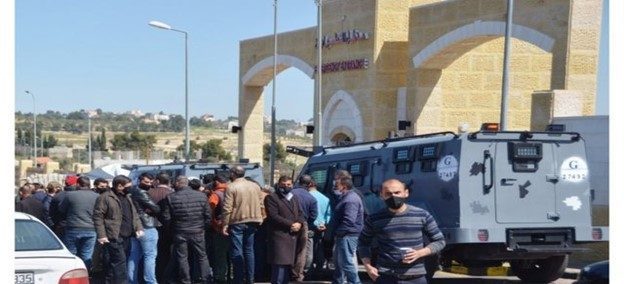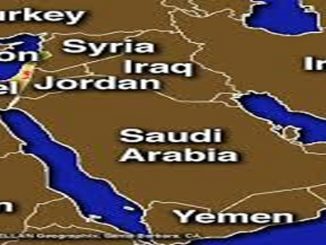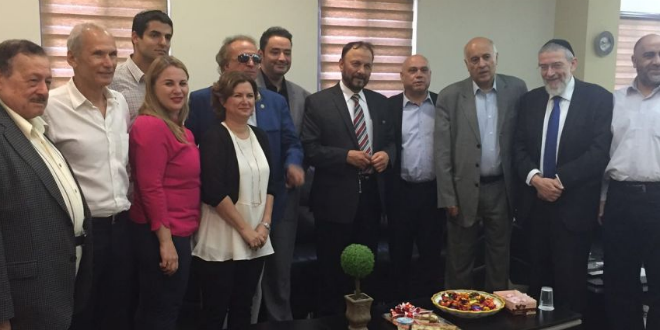
Several patients died on March 13 in the Jordanian capital, Amman, due to a shortage of oxygen supplies, reminding of a similar incident in Egypt’s Shaqiya Governorate on January 3, but with different reactions from the governments of the two countries.
Anger escalated in Jordan as several COVID-19 patients died when their oxygen supply ran out at a government hospital. The Jordanian al-Salt New Hospital incident aroused anger among Jordanians after reports about the death of eight COVID-19 patients due to the lack of oxygen.
Jordanian state media on March 13 reported at least seven deaths at the government hospital in the town of al-Salt, some 20 kilometres (13 miles) north of the capital, Amman.
In a statement, Jordanian Prime Minister Bisher al-Khasawneh said he ordered an immediate investigation into the incident. He said those responsible for the incident will be held accountable.
Jordanian Health Minister Nathir Obeidat tendered his resignation following the hospital deaths. Speaking at a press conference in Amman, Obeidat said he bears the ethical responsibility for the incident.
Denouncing the incident, the king also ordered the hospital’s director suspended, according to al-Mamlaka TV.
In video footage that circulated online, the king was heard saying to the hospital director: “How could such a thing happen. This is unacceptable.”
Medical sources reported that the oxygen cut started from 6am and lasted until 8am, which prompted the hospital administration to seek help from ambulances and civil defense teams. The oxygen failure hit the intensive care, maternity and coronavirus wards in the hospital.
The deaths come as the daily virus caseload in Jordan has surged in recent weeks, prompting authorities to reimpose restrictions, including an all-day curfew on Fridays, the day of rest and prayer. The country has reported more than 465,000 cases and some 5,200 deaths during the pandemic. It launched its vaccination drive in mid-January with plans to inoculate more than four million residents in 2021.
Tweeters compare Salt Hospital incident to Egypt’s Husseiniya Hospital
Egyptian and Jordanian tweeters made a comparison between what happened in the Jordanian al-Salt New Hospital and the Egyptian al-Husseiniya Hospital, but with different reactions from governments of both countries.
On January 3, 2021, Egyptian reports spoke of the death of COVID-19-infected patients due to lack of oxygen.
Egyptians’ anger on social media mounted after all coronavirus patients died in intensive care units (ICUs) due to a shortage of oxygen at the Husseiniya Central Hospital in Sharqia governorate.
With hashtag #مستشفي_الحسينيه, social media users on twitters and Facebook published photos and videos for the dead patients, including a young man and an elderly man. Photos of a female doctor panicked when the medical personnel failed to rescue the patients.
Governor of Sharqia Mamdouh Ghorab stated that only four patients died due to chronic diseases not the shortage of oxygen. “Oxygen is available in the Husseiniya Hospital,” he said. However, social media users said that the number of dead patients is seven.
“Only four cases were on ventilators. The death was natural as a result of the deterioration of their condition because of the infection with the Coronavirus and their chronic diseases,” he said in a statement.
Meanwhile, he referred the security guards who were in charge of securing the hospital for investigation because they had allowed other individuals to enter the isolation care unit and photograph patients.
Ministry statement
On the same day, the Ministry of Health released a statement confirming that four patients had died at El Husseiniya Central Hospital, two and a half hours from Cairo, but offered a different narrative about what had happened. “They died at different times; most of them were elderly people with chronic illnesses who suffered from complications as a result of their infection with the coronavirus, which led to the deterioration of their health and their death,” the statement read.
Questioned for posting viral video
One day after the incident, Sharqiyah Security Directorate summoned the citizen who shot a video in the intensive care unit of the quarantine section at Husseiniya Hospital and posted it on social media. The citizen – called Ahmed Mamdouh – said in the video that all patients on the ventilators in the intensive care unit died in the same time as a result of the depression in oxygen levels pumped into them. He said his aunt was lying in the intensive care and was among the four patients who died. Mamdouh was interrogated on the reason behind his presence in the hospital and the goal of posting the video on social media.
National security
“The government perceives the idea of saying there’s a shortage of anything like oxygen or PPE or breathing machines as sensitive information and a matter of national security,” says Ayman Sabae, a researcher at the Egyptian Initiative for Personal Rights, a human rights group. Maybe there is no oxygen shortage, but then again the body that has been conducting the investigation is the ministry, which is also managing the hospitals, which is a reason for skepticism. There is a problem of credibility.”
Health minister accuses Brotherhood
In her initial comment on the incident and following the example of Sisi, Egyptian Minister of Health, Hala Zayed accused anyone talking about lack of Oxygen in the Al-Husseiniya Hospital as belonging to Muslim Brotherhood. Zayed confirmed the incorrectness of the video circulating, denying in statements to Egyptian media that the death of intensive care patients at Al-Husseiniya Hospital had anything to do with lack of oxygen, considering that “everyone who repeats that is “brotherhood”!!



